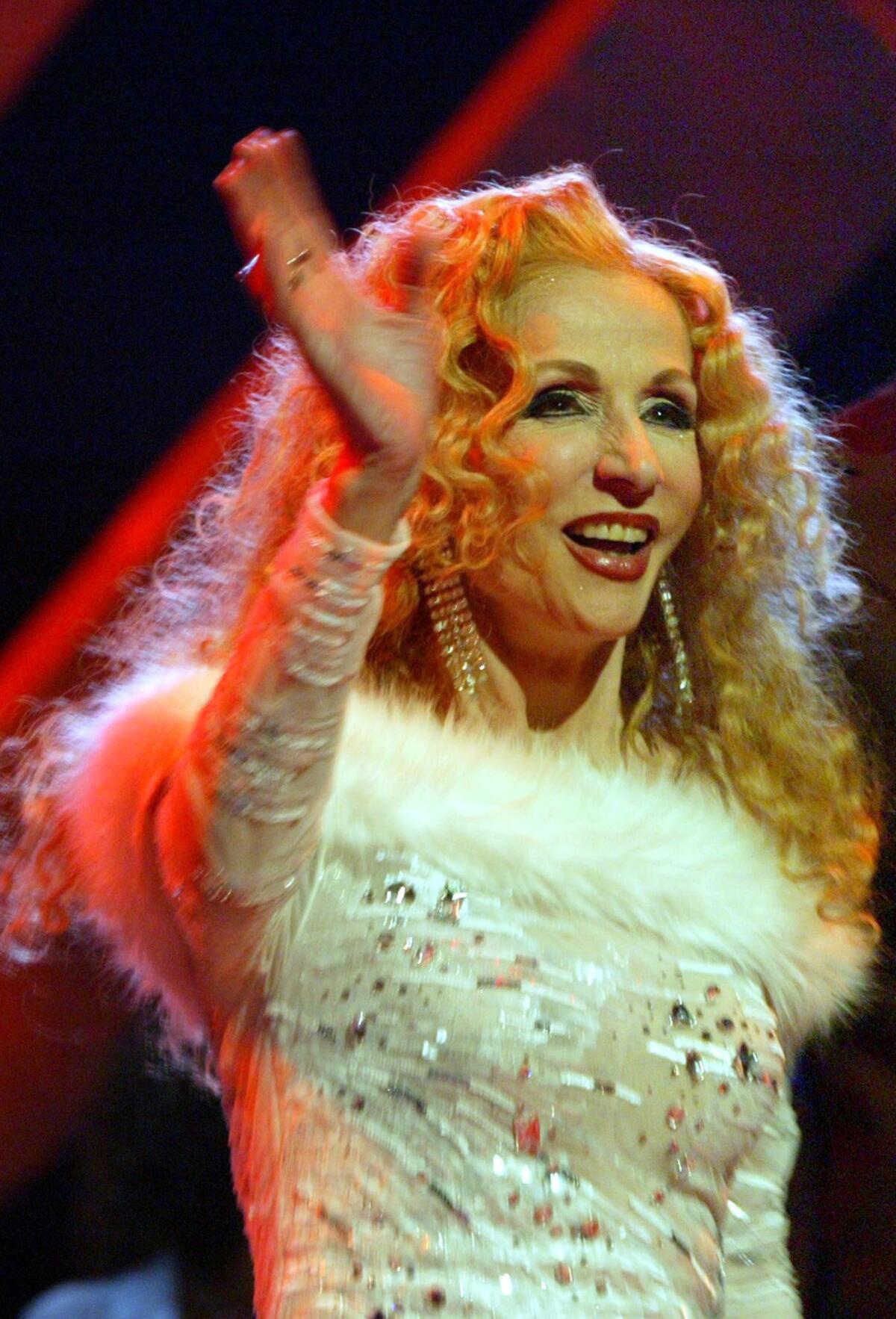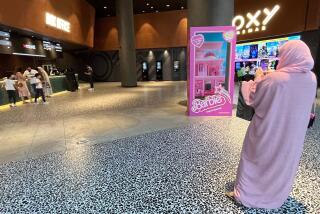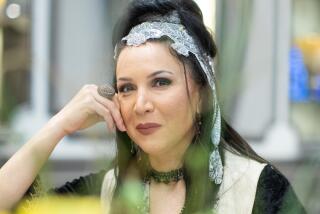Sabah, chanteuse and actress from Lebanon’s ‘golden years,’ dies at 87

- Share via
Lebanese chanteuse and actress Sabah, an iconic cultural figure in the Arab world for more than six decades, died Wednesday, Lebanese media and her family reported. She was 87.
A beloved and sometimes controversial performer who entranced audiences on the stage, cinema and television, Sabah died at her residence in a Beirut hotel from a “sudden health setback,” her family said. She leaves an extensive legacy comprising more than 3,000 songs in 50 albums as well as appearances in 83 films and 27 plays, according to press accounts.
Born Jeanette Gergis Al-Feghali in 1927 in Bdadoun, a Maronite Christian mountain village south of Beirut, she was universally known as Sabah (“morning”), though some adoring fans preferred the diminutive “Sabbouha.” She achieved fame in her homeland before garnering a three-movie deal that took her in 1940 to Cairo, then the Hollywood of the Arab world.
The legendary Egyptian composer Riyadh Al-Sunbati took on the task of honing her lusty voice, used to great effect in traditional Lebanese folk songs, into a more refined sound that earned her the sobriquet “Al-Shahrourah” (songbird) or, simply, “Al-Ustoura” (the legend). Her distinctive sound and style eventually brought her to audiences in New York, Sydney, Paris, London and Las Vegas.
Meanwhile, her sultry, movie-star looks -- come-hither eyes, full lips, a flowing mane of (usually) blond hair -- made her an equally captivating figure off stage.
Her love affairs were the subject of endless gossip as she cavorted with the Arab world’s glitterati, including Jordan’s late King Hussein, an especially ardent suitor. Other dignitaries regularly vied for her affections -- a state of affairs that reportedly piqued the interest of intelligence services keen to recruit the flamboyant diva as a spy.
Eventually, she married as many as nine times (there are varying accounts), racking up an Elizabeth Taylor-esque haul of husbands from diverse pedigrees, including several well-known Arab artists. The marriages, several to men many years her junior, lasted from one month to 17 years, according to published accounts in Lebanon. She leaves a son and a daughter, the Lebanese media reported.
During her eventful career, Sabah also courted the controversial -- and the comical -- with a string of plastic surgeries and garish gowns that characterized her later appearances and made her a fixture of the gossip columns.
Sabah performed until 2009 in both concert venues and on television, the Lebanese national news service reported, recalling one TV appearance during which she sang “opposite a line of mannequins displaying costumes from several of her early films and musicals.”
Profound sadness and a sense of loss dominated news of the death of a star inextricably linked nostalgically to Lebanon’s “golden years,” before the onset of the sectarian-fueled civil war that ravaged the country beginning in the mid-1970s.
“With the leaving of Sabah,” tweeted Lebanese politician Walid Jumblatt, “a beautiful past for Lebanon has departed, never to return.”
On a Lebanese talk show, Syrian actor Durayd Lahaam lamented that he could not bring himself to say good morning “now that the princess of the sun has left.”
Bulos is a special correspondent. Times Staff Writer Patrick J. McDonnell in Beirut contributed to this report.
Twitter: @mcdneville
More to Read
Start your day right
Sign up for Essential California for the L.A. Times biggest news, features and recommendations in your inbox six days a week.
You may occasionally receive promotional content from the Los Angeles Times.







